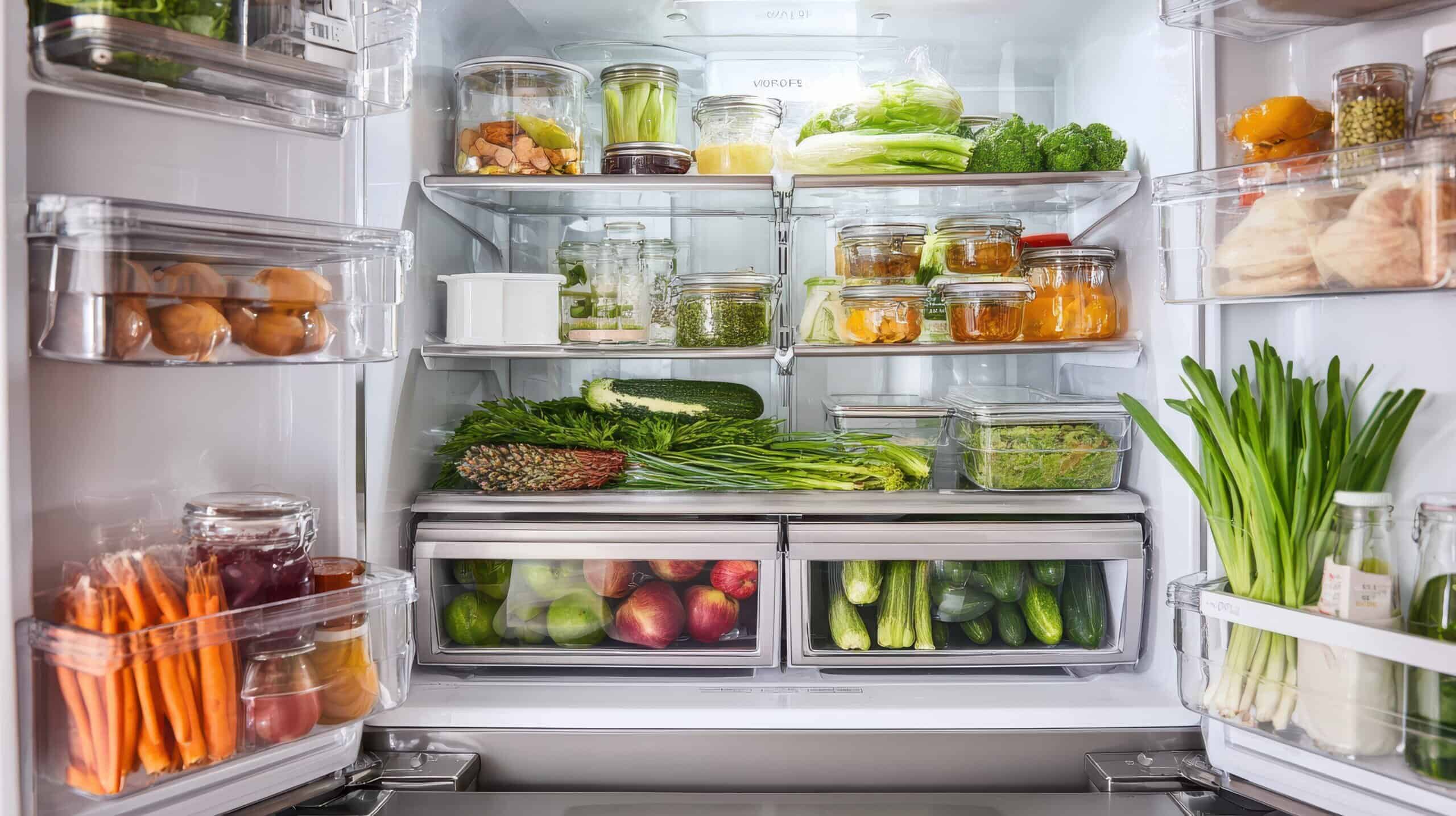What to eat during menopause
Menopause can be a difficult time in life to navigate. It often comes hand in hand with a range of accompanying symptoms like hot flashes, low mood, sleep troubles and weight gain, even when you haven’t changed your diet or lifestyle. Thankfully, altering what you eat can help minimise these unwanted side effects, including limiting weight gain. Keep reading and find out what to eat during menopause.
Weight gain during menopause
Weight gain can naturally occur during menopause, along with other body composition changes like loss of lean mass and the accumulation of visceral fat (otherwise known as belly fat).1 This is in part due to the decrease in oestrogen levels resulting in the metabolism slowing down, as well as due to changes to the gut microbiome, stress and lifestyle changes, decrease in physical activity and sleep deprivation as a result of hot flashes throughout the night.2
While a small amount of weight gain is natural during menopause, it’s important to educate yourself on what to eat during menopause so you can limit unhealthy levels of weight gain, which can then lead to increased risk of developing cardiovascular diseases, metabolic syndrome and type 2 diabetes.3,4
The Fast 800 Programme houses recipes, meal plans, automated shopping lists, exercise videos and more to help guide you through healthy weight loss and weight maintenance. Start today for a 7-day free trial.
START YOUR FREE TRIAL
A Mediterranean-style diet and menopause
If you’re concerned about weight management during menopause then a Mediterranean-style diet is the place to start. It’s proven to result in greater weight loss than a low fat diet, so it promotes weight loss in addition to limiting weight gain during menopause.5 It’s far from a fad-diet and is more of a lifestyle that comes with countless health benefits. It’s for this reason that a Mediterranean-style diet is at the heart of our Programme and what we do at The Fast 800.
As well as being one of the healthiest ways of eating, a Mediterranean-style diet also perfectly encapsulates what to eat during menopause, with all the nutrients you need to thrive during this time in life. It combats health risks associated with menopause weight gain by reducing your risk of chronic illnesses such as cardiovascular disease, metabolic syndrome and type 2 diabetes, as well as improving your sleep and mental health.6,7,8
Join our email community
Learn more about The Fast 800 approach to healthy living by receiving our free content, health tips and recipes as well as exclusive offers, delivered straight to your inbox.
What to eat during menopause
When thinking about what to eat during menopause, there are some key foods and nutrients that will best support your journey and overall health. While there are some foods to prioritise, there are also some to watch out for which may exacerbate symptoms and put your health at risk.
Foods to prioritise:
- Protein: Protein is a key macronutrient to prioritise in your diet before, during and after menopause. It is used to repair bones and muscles, keep joints and skin healthy, and provide energy, all of which are essential to support at this time of life. Protein-rich foods like oily fish, chickpeas, and eggs help minimise menopause symptoms of poor sleep, low mood and bone loss.9
- Healthy fats: Many of us have been led to believe that eating fat leads to weight gain, however there are forms of healthy fat that provide countless health benefits when eaten as part of a balanced diet. When considering what to eat during menopause, ensure to include healthy fats like cottage cheese, olive oil and Greek yoghurt.
- Fibrous carbohydrates: Research suggests that menopause is associated with lower gut microbiome diversity.10,11 Diversifying your gut microbiome by including plenty of fibrous carbohydrates in your diet will help regulate many symptoms, including weight gain by stabilising your metabolism. Fibrous carbohydrates include legumes and beans, veggies like cabbage and nuts and seeds.
All of these foods and nutrients are a staple part of a Mediterranean-style diet, further showing why it’s the best way of eating when it comes to what to eat during menopause. For delicious recipes that include all of these foods, and that cater to a variety of dietary requirements and cuisines, head to our Programme.
Foods to avoid:
- Excess sugar: When thinking about what to eat during menopause, try to limit your sugar intake. Consuming too much sugar, including natural sugars in foods like fruit that you may think are healthy, can contribute to menopausal symptoms of mood, sleep, memory and concentration issues.12 Limit your sugar during this time in life and you may find an improvement in these problems.
- Ultra-processed foods: Foods that are ultra-processed, like junk and convenience food, have been shown to directly relate to hot flash intensity and sexual disorders during menopause.13 This is as well as the known effects these kinds of foods have on sleep, mood and overall health. Stick to Mediterranean-style whole foods rather than reaching for unhealthy ultra-processed foods to support a healthy menopause journey.
- Alcohol: Studies have found that regular consumption of alcohol is another contributor to worsened menopause symptoms, particularly of hot flashes and night sweats.14 Not only that, but alcohol consumption further increases your risk of breast cancer, so make sure you drink mindfully during menopause.15
Now you know what to avoid and what to eat during menopause, including plenty of protein, fibre and healthy fats, you’re sure to find it a smoother transitional life stage. For helpful meal plans and delicious Mediterranean-style recipes, as well as Community groups dedicated to menopause for peer support, sign up to your 7-day free trial of The Fast 800 Programme here.
Greendale GA, Sternfeld B, Huang M, Han W, Karvonen-Gutierrez C, Ruppert K, Cauley JA, Finkelstein JS, Jiang SF, Karlamangla AS. Changes in body composition and weight during the menopause transition. JCI Insight. 2019 Mar 7;4(5):e124865. doi: 10.1172/jci.insight.124865. PMID: 30843880; PMCID: PMC6483504.
Fenton A. Weight, Shape, and Body Composition Changes at Menopause. J Midlife Health. 2021 Jul-Sep;12(3):187-192. doi: 10.4103/jmh.jmh_123_21. Epub 2021 Oct 16. PMID: 34759699; PMCID: PMC8569454.
Guthrie JR, Dennerstein L, Dudley EC. Weight gain and the menopause: a 5-year prospective study. Climacteric. 1999 Sep;2(3):205-11. doi: 10.3109/13697139909038063. PMID: 11910598.
Lizcano F, Guzmán G. Estrogen Deficiency and the Origin of Obesity during Menopause. Biomed Res Int. 2014;2014:757461. doi: 10.1155/2014/757461. Epub 2014 Mar 6. PMID: 24734243; PMCID: PMC3964739.
Estruch R, Martinez-Gonzalez M, et al. Effect of a high-fat Mediterranean diet on bodyweight and waist circumference: a prespecified secondary outcome analysis of the PREDIMED randomized controlled trial. The Lancet: Diabetes & Endocrinology. 2016.
Emilio Ros, et al. Mediterranean Diet and Cardiovascular Health: Teachings of the PREDIMED Study, Advances in Nutrition, Volume 5, Issue 3, May 2014, Pages 330S–336S, https://doi.org/10.3945/an.113.005389
Jacka, F.N., O’Neil, A., Opie, R. et al. A randomised controlled trial of dietary improvement for adults with major depression (the ‘SMILES’ trial). BMC Med 15, 23, 2017, https://doi.org/10.1186/s12916-017-0791-y
Godos J, et al. Adherence to the Mediterranean Diet is Associated with Better Sleep Quality in Italian Adults. Nutrients. 2019 Apr 28;11(5):976. doi: 10.3390/nu11050976. PMID: 31035395; PMCID: PMC6566275.
Al-Anazi AF, Qureshi VF, Javaid K, Qureshi S. Preventive effects of phytoestrogens against postmenopausal osteoporosis as compared to the available therapeutic choices: An overview. J Nat Sci Biol Med. 2011 Jul;2(2):154-63. doi: 10.4103/0976-9668.92322. PMID: 22346228; PMCID: PMC3276006.
Peters BA, Santoro N, Kaplan RC, Qi Q. Spotlight on the Gut Microbiome in Menopause: Current Insights. Int J Womens Health. 2022 Aug 10;14:1059-1072. doi: 10.2147/IJWH.S340491. PMID: 35983178; PMCID: PMC9379122.
Becker SL, Manson JE. Menopause, the gut microbiome, and weight gain: correlation or causation? Menopause. 2020 Nov 23;28(3):327-331. doi: 10.1097/GME.0000000000001702. PMID: 33235036.
Noll PRES, Noll M, Zangirolami-Raimundo J, Baracat EC, Louzada MLDC, Soares Júnior JM, Sorpreso ICE. Life habits of postmenopausal women: Association of menopause symptom intensity and food consumption by degree of food processing. Maturitas. 2022 Feb;156:1-11. doi: 10.1016/j.maturitas.2021.10.015. Epub 2021 Oct 29. PMID: 35033227.
Noll PRES, Noll M, Zangirolami-Raimundo J, Baracat EC, Louzada MLDC, Soares Júnior JM, Sorpreso ICE. Life habits of postmenopausal women: Association of menopause symptom intensity and food consumption by degree of food processing. Maturitas. 2022 Feb;156:1-11. doi: 10.1016/j.maturitas.2021.10.015. Epub 2021 Oct 29. PMID: 35033227.
Leidy Sievert, L., Makhlouf Obermeyer, C., & Price, K. (2006). Determinants of hot flashes and night sweats. Annals of Human Biology, 33(1), 4–16. https://doi.org/10.1080/03014460500421338
Naomi E. Allen, Valerie Beral, Delphine Casabonne, Sau Wan Kan, Gillian K. Reeves, Anna Brown, Jane Green, on behalf of the Million Women Study Collaborators, Moderate Alcohol Intake and Cancer Incidence in Women, JNCI: Journal of the National Cancer Institute, Volume 101, Issue 5, 4 March 2009, Pages 296–305, https://doi.org/10.1093/jnci/djn514









